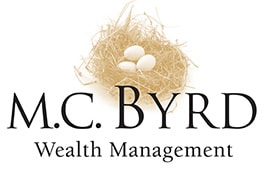As a successful business owner, you have invested time, energy, and resources into building a thriving enterprise. For many entrepreneurs like you, your business represents the majority of your net worth. As you approach retirement, understanding the value of your business becomes crucial for effective retirement planning and ensuring financial security. In this article, we will delve into the importance of business valuation in retirement planning, discuss various factors affecting business value, and explain the benefits of working with an experienced financial advisor to navigate this critical process.
The Role of Business Valuation in Retirement Planning
Assessing Your Financial Readiness for Retirement
Determining the value of your largest asset For many business owners, the enterprise they have built over the years constitutes the most significant portion of their wealth. Accurate business valuation is a fundamental part of retirement planning, as it helps you determine the resources available for your post-retirement lifestyle. By assessing the worth of your largest asset, you can gauge how well-prepared you are for retirement and make informed decisions about when to retire and how to allocate resources.
Identifying potential income sources post-retirement In addition to the proceeds from the sale or transition of your business, you may have other income sources during retirement, such as investment portfolios, rental properties, or pension plans. A thorough business valuation helps you assess the role your business will play in your overall financial picture and how it will contribute to your retirement income.
Developing an Exit Strategy
Preparing your business for sale or transition As you approach retirement, it is vital to establish a well-thought-out exit strategy to ensure a smooth transition and preserve the value of your business. A comprehensive business valuation enables you to identify areas of improvement, enabling you to make necessary changes before putting your business on the market or transitioning it to a successor. This proactive approach can help maximize your business’s value and secure a better financial outcome for your retirement.
Maximizing the value of your business Understanding your business’s worth enables you to identify strategies to enhance its value, making it more attractive to potential buyers or successors. This may include streamlining operations, expanding the customer base, or implementing innovative technologies to improve efficiency. By taking steps to maximize your business’s value, you can bolster your financial position and achieve your retirement goals.
Factors Affecting Business Valuation
Multiple factors can influence your business’s value, and understanding these variables is critical to obtaining an accurate valuation. Some of the key factors include:
Market conditions and industry trends
The overall economic landscape and specific trends within your industry can significantly impact your business’s value. Factors such as market growth, demand for your products or services, and the competitive landscape play a crucial role in determining the worth of your business.
Financial Performance and growth potential
Your business’s financial health and its potential for growth are essential components of its value. Potential buyers or successors will closely examine your company’s revenue, profitability, cash flow, and growth trajectory when assessing its worth.
Management structure and operational efficiency
An efficient management structure and well-defined operational processes contribute to a higher business value. A strong leadership team and a capable workforce demonstrate stability and resilience, which can be attractive to potential buyers or successors.
Customer base and competitive advantages
A diverse and loyal customer base is a valuable asset for any business. Additionally, unique competitive advantages, such as proprietary technology, strong brand recognition, or exclusive partnerships, can contribute to your business’s overall value.
Methods of Business Valuation
There are several methods of business valuation, each with its own merits and applicability. Choosing the right method for your business is critical to obtaining an accurate and meaningful valuation. The most common methods include:
Asset-based approach
This method focuses on the net value of a business’s tangible and intangible assets, minus its liabilities. The asset-based approach is particularly useful for businesses with significant physical assets or those considering liquidation. However, it may not accurately capture the value of businesses with strong growth potential or significant intangible assets.
Income-based approach
The income-based approach estimates the value of a business based on its capacity to generate income in the future. Commonly used methods include the Discounted Cash Flow (DCF) and Capitalization of Earnings. This approach is suitable for businesses with a consistent income stream and reliable financial projections but may not be as applicable for startups or companies with volatile earnings.
Market-based approach
The market-based approach values a business by comparing it to similar businesses that have recently been sold or publicly traded. This method relies on market data and industry benchmarks to determine a fair market value. While the market-based approach can provide useful insights, it may not always account for unique characteristics or competitive advantages specific to your business.
Choosing the right method for your business
Selecting the most appropriate valuation method for your business requires careful consideration of its specific characteristics, industry, and financial performance. Working with an experienced financial advisor can help you choose the right method and ensure an accurate valuation, setting the stage for a secure retirement.
The Benefits of Working with a Financial Advisor
Partnering with a financial advisor well-versed in business valuation and exit planning can provide invaluable guidance and support throughout the process. Some of the key benefits include:
Knowledge of business valuation and exit planning
An experienced financial advisor brings a wealth of knowledge in business valuation techniques and exit strategies, ensuring a comprehensive and accurate assessment of your business’s worth. This expertise can help you maximize the value of your business and achieve your retirement objectives.
Personalized advice to meet retirement goals
A financial advisor will take the time to understand your unique retirement goals, financial situation, and risk tolerance. This personalized approach allows them to provide tailored recommendations and strategies that align with your objectives and ensure a secure retirement.
Assistance in managing the proceeds of the business sale
Once your business has been sold or transitioned, a financial advisor can help you manage the proceeds effectively. They can provide guidance on diversifying your investment portfolio, optimizing tax strategies, and ensuring that your wealth is managed in a manner that supports your retirement lifestyle and long-term financial security.
Comprehensive financial planning for a secure retirement
A financial advisor offers a holistic approach to financial planning, addressing all aspects of your financial life, including investment management, tax planning, estate planning, and risk management. This comprehensive service ensures that every aspect of your retirement planning is expertly managed, providing peace of mind as you embark on this new chapter in your life.
Understanding the value of your business is an integral part of retirement planning, enabling you to make informed decisions about your financial future. By partnering with a skilled financial advisor who specializes in business valuation and exit planning, you can ensure a smooth transition, maximize the value of your business, and secure a comfortable retirement. At our firm, we pride ourselves on providing informed advice to help you achieve your goals. Schedule a consultation with us today to begin the journey toward achieving a successful retirement.


